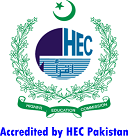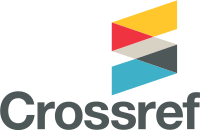Policy Document - JES
The Journal of European Studies (JES) publishes research articles, opinions, speeches, and reviews relating to the European continent. It covers its institutions, governance, issues, politics, foreign policy, security, culture, art, literature, history, civilization, religion, philosophy, law and its diplomatic, trade and commercial ties with the rest of the world. It deals with the multi-disciplinary subjects that are inter connected and relevant with the European context.
Frequency of Journal
- The Journal of European Studies (JES) is a bi-annual and open-access journal. The Area Study Centre for Europe, University of Karachi has been publishing it since 1985.
Timelines of Publication of Issues
- 1st week of January & 1st week of July
Authorship of the Paper
Authorship of the paper qualifies for an author or co-author(s) who have dully contributed to the research article on the bases of its conception, design, data collection and analysis, drafting and revising it for intellectual input in the content. The principal author will be the first author. Co-author(s) are ethically bind to follow the sequence of authors’ name as appeared in published article (in future correspondence to the national / international publications’ repository and in their CVs). All other sorts of support or assistance to the research should be placed in the acknowledgement section by the author. If the research paper is based on the Ph.D./M.Phil. thesis of an author, the supervisor’s name should appear either as second author or in acknowledgement section.
It is required that a scanned copy of the Authorship Agreement (Annex-I) be submitted with signature(s) of the author(s) with a covering letter at jes.asce@gmail.com at the time of article submission. The corresponding author should clearly mention his/her name and contact.
Contribution and Consent of each Author
According to HEC guidelines, in case of multiple authors, they will have to declare their area of expertise as well as the proportion each has contributed to the research article. Co-author(s)’ details and consent will be provided by the corresponding author in the Author’s Undertaking (Annex-I).
Originality and Plagiarism Policy
- Journal of European Studies uses Turnitin software to identify the degree of plagiarism. If the similarity is more than 19%, the paper would be returned to the author(s) immediately.
- HEC has allowed only 5% AI generated text in all academic writings. If any manuscript found more than 5% AI generated content, it would be immediately sent back to the author for revision and resubmission.
- If any fraudulent or other unethical practices are detected after publishing the paper, Editorial Board reserves the right to remove the paper from the e-version of the Journal as per HEC’s plagiarism policy. See: https://www.hec.gov.pk/english/services/faculty/Plagiarism/Pages/default.aspx

- The authors shall bear the responsibility for the content of their research.
- Verbatim and paraphrasing are not appropriate. However, if authors find it relevant to construct an argument or analysis, it is mandatory for them to properly cite the exact reference of the source.
Peer Review Policy
All submissions are subjected to double-blind peer review. They need to follow the Journal of European Studies format. Review comments or required modifications (if any) would be sent by the editor to the author or corresponding author. Positive comments in favour of its publication would enable the manuscript to move forward for editorial process. If reviewers declare the article unpublishable for the Journal, the manuscript would be referred back to the author. However, if one referee report is in favour of its publication, it is the discretion of the editor to ask the author to resubmit the paper after responding to the reviewer’s queries and objections. If the author submits the modified paper, the editor would recheck the manuscript to the satisfactory level and submit his/her editor note in the peer review section (explaining justification for publication approval).
Article Processing/Publication Fee (Only for National Contributors)
- International scholars are cost free contributors in JES.
| S. No. | Description of Fee | Amount |
|
1. |
Processing Charges (Faculty & Students) at the time of submission of the Article |
Rs.5,000/- |
|
2. |
At the time of Publication after successful peer review report: |
|
|
a. |
Publishing Charges for Authors (Faculty) of the University of Karachi and other Universities. |
Rs.15,000/- |
|
b. |
Publishing Charges for Students of ASCE, UoK and other Universities |
Rs.10,000/- |
Subscription Details
The subscription charges for the Journal of European Studies are payable through an online banking transaction. Upon subscription request, the bank account details and payment procedure will be provided through email. The requests should be sent to [jes.asce@gmail.com].
Disclosure and Conflicts of Interest
The Editor(s) of the Journal of European Studies, Peer Reviewers, and Author(s) are guided by the HEC’s ethical guidelines on how to clearly state their conflicts of interest (personal, financial or non-financial, if any) regarding the submitted research paper. Please click the link to fill-up the Disclosure Statement Form (Annex-II). It represents a commitment to transparency in conducting research or during vetting and editorial work. The Editor or the Chief Editor is responsible to resolve the reported conflicts at the time of any step of the editorial/publication procedure.
Correction and Retraction of Research Articles
As per HEC guidelines, the Editor should publish a corrigendum, containing the correct version of typo error or inaccurate information in the next issue of the journal. Furthermore, the editor or advisory committee has the authority to retract the research article after publication in the Journal of European Studies, if any fraudulency or misconduct is found.
Policy and Principles on Research Data
The author(s) are requested to share consent letters of copyright materials (research data, graphs, tables, etc. used in their submitted article) if it is obtained from any other publishing authority. As copyright of the article in Journal of European Studies rests with its author, he/she bears the responsibility of the submitted contents. However, the editor and publisher (Area Study Centre for Europe) are committed to maintaining their privacy policy/confidentiality regarding the published or unpublished work/data by the author. Similarly, peer reviewers are bound to not use, for their own purpose, an unpublished data included in a research paper submitted to them for vetting.
Any other National/International Guideline
The Journal of European Studies follows HEC policies. Also, JES has adopted the international guidelines of the Creative Commons Attribution 4.0 International License Policy and Directory of Open Access Journals (DOAJ).
Guidelines for Submission of Research Articles
As part of the submission process, the authors are required to check their submission's compliance with all the following items. The submissions that do not adhere to these guidelines would be returned to their authors.
- The submission has not been previously published, nor it is forwarded to another journal for consideration (or an explanation has been provided in Comments to the Editor).
- The article written must contain a minimum of 40% content related to the European perspective to make the research situate within the parameter of JES.
- Authors are requested to check their plagiarism index before submission which should be under 19% and AI generated content not more than 5% as per HEC standards.
- No author is allowed to submit his/her research article to more than one journal simultaneously.
- Authors are required to obtain ORCID ID and register themselves online at its website orcid.org/register before submission. The ID will have to be shared with the submitted article.
- The submission file must be in either Microsoft Word or RTF document file format.
- Where available, the URLs for the references will have to be provided.
- The text must be single-spaced; uses a 12-point font; employs italics instead of underlining (except with URL addresses); and all illustrations, figures, and tables are placed within the text at the appropriate points, rather than at the end.
- The text must adhere to the stylistic and bibliographic requirements outlined in the Author’s Guidelines.
- Last date of submission of articles for biannual issues: Issue no.1 (March 30), issue no.2 (September 30).
The articles should be sent to the Editor, Journal of European Studies, Area Study Centre for Europe, University of Karachi. The contributors are requested to e-mail the manuscript to be considered for publication by the editorial board at jes.asce@gmail.com or online at [https://asce-uok.edu.pk/journal/index.php/JES/about/submissions].
The Articles should contain a minimum of 5,000 and a maximum of 7,000 words. An abstract of around 200 words should accompany the manuscript. References should be placed at the end of each page of the article. Also, a complete bibliography should be given at the end of the article. For bibliography and footnotes, A Manual for Writers by Kate L. Turabian (8th edition) or Chicago Style should be consulted.
Three footnote samples are given below:
- Eric Foner, Who Owns History? Rethinking the Past in a Changing World(New York: Hill and Wang, 2002), 65.
- Farhan Hanif, “EU-Pakistan Relations”, Journal of European Studies23, no. 2 (July 2006): 45-62, accessed on April 2, 2023, URL.
- Mary Kaldor, “The EU Needs to Return to its Root”, The Guardian, 1 March 2010, URL.
Bibliography:
- Foner, Eric. Who Owns History?... World. 1st New York: Hill, 2002.
- Hanif, Farhan. “Title”. JES 23, no.2 (July 2006). Accessed on. URL.
Ethical Guidelines
- The Journal of European Studies is a Higher Education Commission (HEC) – funded and recognized publication.
- It owes a responsibility to maintain publication ethics and standard under the described parameters of Ethical Guidelines of Higher Education Commission, Islamabad.
- The JES covers a wide range of interdisciplinary subjects. It is, therefore, very careful about publishing content on sensitive issues and topics. It would take all the necessary measures to maintain its authenticity and intellectual value for the national and international research and academic community.
- The author(s) is/are required to thoroughly read the HEC Ethical Policy before submitting their paper. See: https://asce-uok.edu.pk/journal/files/HEC-Approved-Ethical-Guidelines.pdf.

Privacy Statement
- The names and email addresses entered in this journal site will be used exclusively for the stated purposes of this journal. It will not be made available for any other purpose or to any other party without written permission.
- Similarly, in case of any research data submitted by the author(s) to the Journal is deemed unfit for publication, the editor and editorial team will not use it for themselves or for any other purpose.
Deadline of all Submissions: Review of Articles
The process of review of articles submitted to the JES proceeds in the following order:
- Duration of Paper Submission as JES designed (for 1st issue: January to March; for 2nd issue: July to September)
- Internal review (from Submission: one to two weeks)
- External review (from submission: four to eight weeks)
- Addition / modification by author: (one week to two weekS)
- Editing/Proofreading: one to two weeks per article
- Layout setting and publication: two weeks
The editor finalizes the galley to upload the journal online, with the approval of Chief Editor. The deadlines are first week of January for first issue and the first week of July for the second issue of JES.
Acceptance of Articles and Publication of Articles
The letter of acceptance of the article is obtainable only after two positive reports by the peer reviewers submitted to the editorial office. The author can download his/her article soon after it is uploaded online. Later on, the author(s) will receive a printed copy of the JES through courier or by hand.
Steps Involved from Date of Receipt of Research Article till the Publication of Article
The editor’s acknowledgement of article submission would be provided to the author in a couple of days. Also, an automatically generated acknowledgement will be sent to the author at online submission.
In the second step, the editor(s) make the first review to check the topic and content of the article according to the journal’s prescribed discipline. Relevant manuscripts run into Turnitin for plagiarism check. After internal review, the editor forwards the paper to peer reviewers for vetting. After review reports, the manuscripts undergo further editorial processes i.e., facts check, grammar corrections, addition or subtraction of contents, proofreading, layout settings, etc. The authors are contacted by the editor or editorial team members during the whole process for queries, modification, or clarifications.














